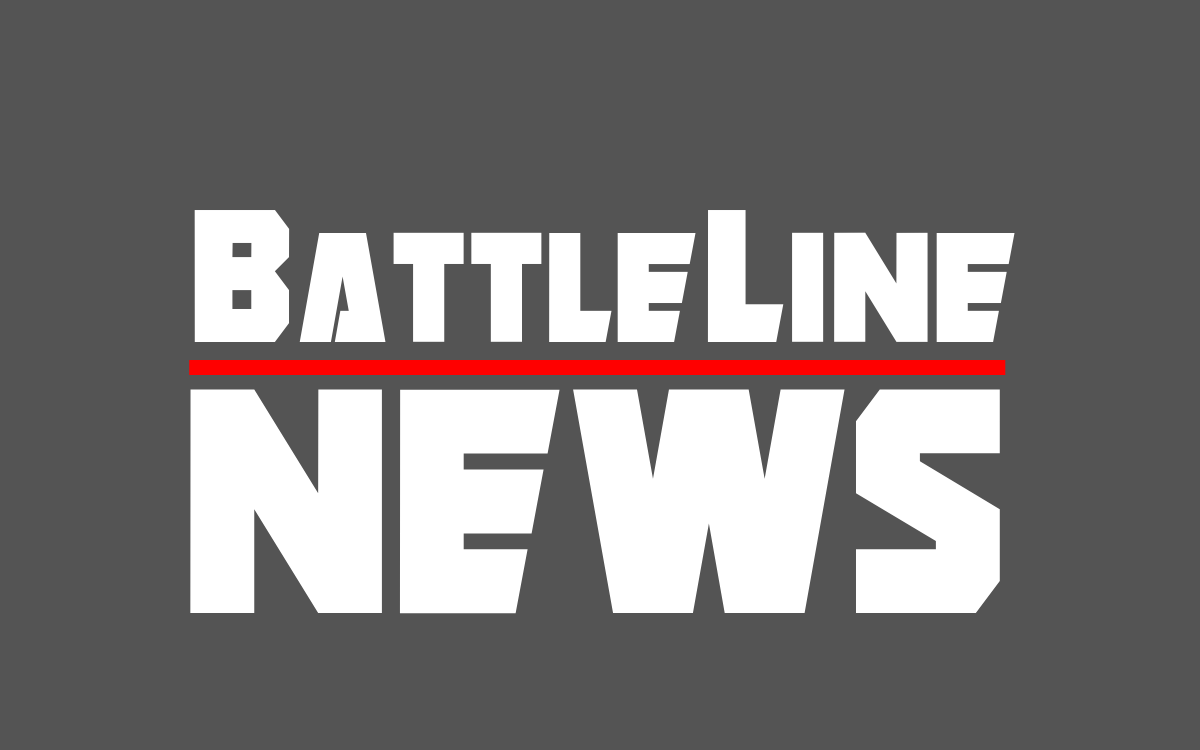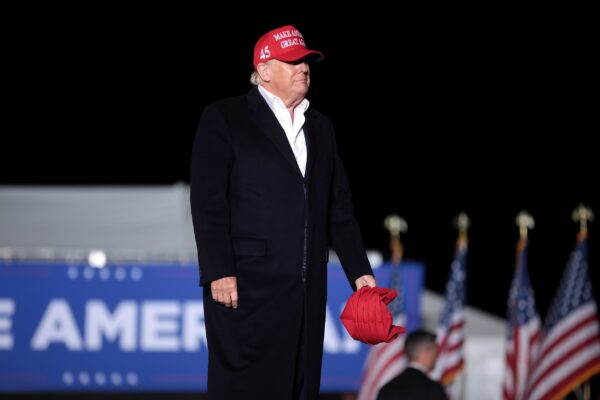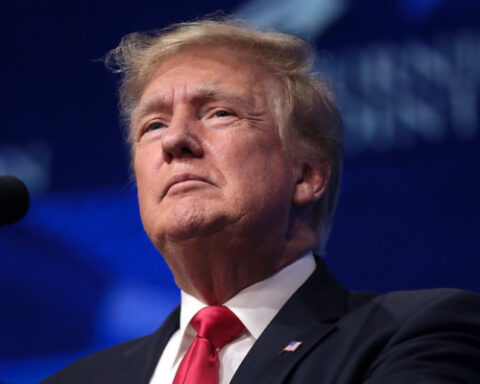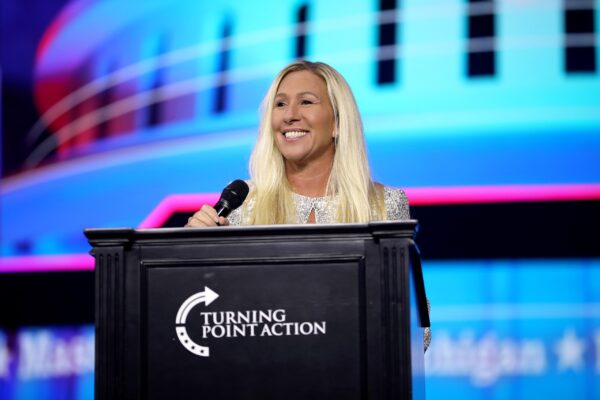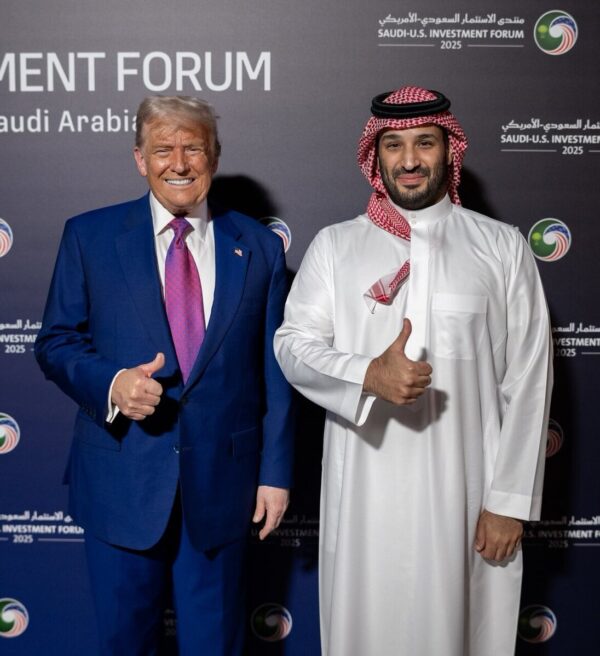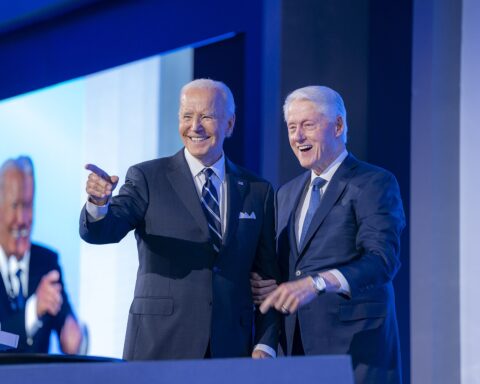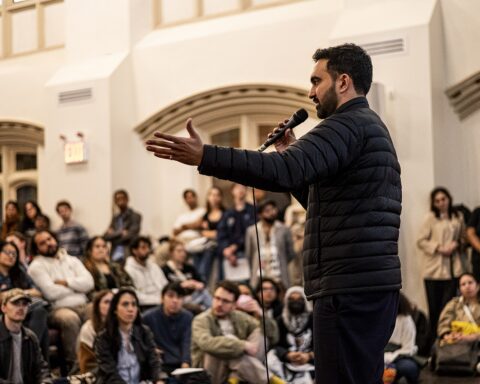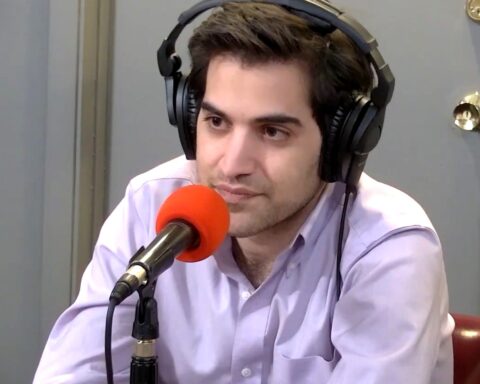President Trump said Sunday that he has engaged in “personal talks with some Democrats” about a proposal that would send direct health care payments to Americans, an idea he has repeatedly framed as a way to counter rising insurance premiums and rein in what he describes as runaway profits in the insurance industry.
Speaking with reporters in West Palm Beach, Fla., before returning to Washington, the president did not identify the Democrats he has spoken to but emphasized that discussions have centered on “paying large amounts of dollars back to the people.” The approach, which he has promoted for months, would shift money away from insurance companies and into the hands of consumers, allowing Americans to purchase coverage on their own terms.
Trump insisted the idea has gained traction across the political spectrum. “Everyone has picked up on the concept,” he said, adding, “People love it.”
The president has portrayed the insurance industry as a central obstacle to affordable health care. “The insurance companies are making a fortune,” he said, criticizing firms whose stock value he claimed is “up over a thousand percent over a short period of time.” According to Trump, insurers are “taking in hundreds of billions of dollars, and they’re not really putting it back, certainly like they should.”
The comments come as the Senate wrestles with how to address rising health insurance premiums following the end of a prolonged government shutdown. Democrats had refused to reopen the government for weeks, conditioning their support on securing an extension of Affordable Care Act subsidies set to expire at the end of the year. They argued that without continued subsidies, Americans would face significant increases in premiums.
Ultimately, a group of eight Democrats reached a deal with Republicans to reopen the government—without securing an extension of the subsidies they had initially demanded. Retiring Sen. Jeanne Shaheen of New Hampshire, one of the eight, has since led discussions involving a bipartisan group of 10 to 12 lawmakers in search of a compromise. But many Republican senators have signaled their opposition to continuing the premium subsidies, maintaining that the existing system places too much financial power in the hands of insurance providers rather than consumers.
A Senate aide said that approximately 20 Democratic offices have quietly begun exploring potential terms for a deal to extend the subsidies, signaling that interest remains high among Democrats even after their initial strategy failed to extract concessions during the shutdown.
For the administration, Trump’s direct-payment proposal appears to represent a broader effort to reshape the health care debate by reframing it around consumer choice and market competition. By emphasizing insurance company profits and calling for money to flow directly back to the public, the president is pitching an approach that he argues aligns more closely with public sentiment than with longstanding Democratic priorities.
Whether the talks he claims to be holding with Democrats will yield a legislative pathway remains uncertain. But the president’s remarks suggest he is eager to capitalize on growing pressure in Congress to address premiums—and to position his proposal as an alternative to continuing the Affordable Care Act’s subsidy structure, which many Republicans remain unwilling to support.
